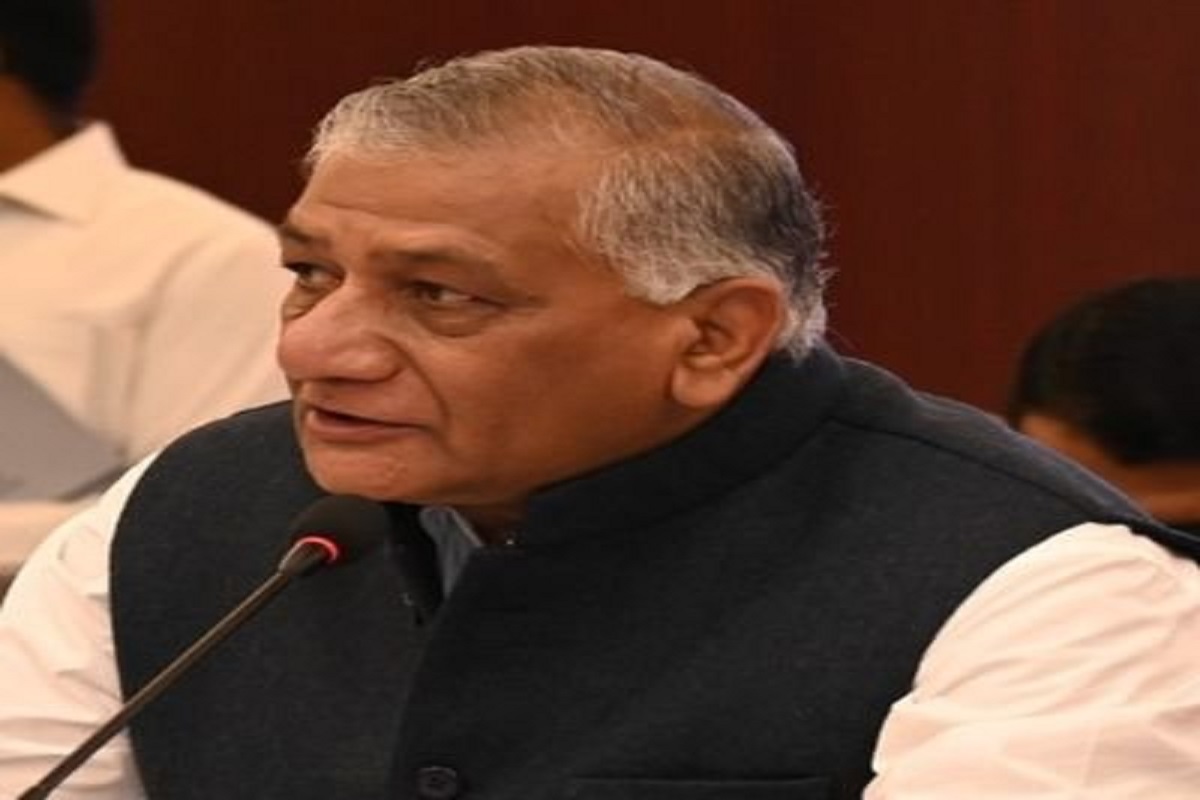Union Minister of State for Civil Aviation, Road Transport and Highways General (Retd) V K Singh said as demand for food is set to increase significantly in the coming decades with the rise in population, countries should harness each other’s strengths and improve trade relations not just to open new business opportunities for sustainable agriculture but also stabilise food availability across regions and help small farmers as part of the agricultural value chain.
“The G-20 countries should look into diverse areas of sustainable practices that promote diversification of crop production systems, efficient utilisation of water resources and fertilizers, assimilation of horticulture practices, soil, health management, and post-harvest management of crops, among others. We should utilise the emerging digital technologies to usher in ease of farming across the G20 countries and the world. India would be happy to share its expertise in this regard with other countries, especially developing and least developed countries,” he said.
“During India’s Presidency, the theme ‘One Earth, One Family, One Future’ signifies our collective efforts for achieving SDGs. “The theme of MACS’ Sustainable Agriculture & food System for healthy people and plant resonates the emphasis put forth in the theme, ” Singh said while inaugurating the G20 Meeting of Agricultural Chief Scientists (MACS) here on Monday.
The Union minister said the UN General Assembly, based on India’s proposal has declared 2023 as International Year of the Millets. This will help highlight the benefits of Millets to the world. Millets are grown in over 130 countries across the world and the maximum production is in Africa. They are climate resilient and nutrition rich highlighting their need in these difficult times of climate change and post pandemic recovery. We have made it a people’s movement and appeal to all the G20 countries to support the move.
“Today, much of India’s development agenda is mirrored in the Sustainable Development Goals. The country is working towards the localization of SDGs to deliver on its global commitments. At G-20, it will accelerate progress on SDGs across all its thematic areas,” Singh said.
He said, “This is an attractive opportunity to take stock of our progress on critical issues of food security and nutrition, climate change adaptation solutions, digital agriculture, public-private investment in agriculture. G20 as a group shares about 85% of the GDP of the world and hence has greater responsibility towards the wellbeing of global humanity.”
The Union minister said, “As two-thirds of the world population lives in G-20 Nations and 60% of all agricultural land and 80% of world trade in agricultural products is accounted for by these countries, our onus on food security and nutrition, livelihood support to the people is crucial. We must utilize our collective strengths for responsible and responsive R&D in agriculture and promoting cooperation for faster transition towards sustainable agriculture and food systems”.
“In India, as the food supply improved, we moved towards the goals of sustainability, efficiency, equity, affordable and healthy safe food as also farmers income and competitiveness in food value chain. Our efforts to deal with global food price shock of 2007-2011 and during COVID -19 pandemic offers useful lessions. We have put the world’s largest rural employment programme under National Rural Employment Guarantee Act since 2005. The scheme provides constitutional right to every rural household to get work for 100 days in a year on voluntary basis. We have the world’s largest food-based safety net programs, reaching out to about 800 million people in 2020, including ~ 120 million school children through the Mid-Day Meal (MDM) scheme,” he stressed.
Singh maintained that political will and policy support in agricultural research gave India results through different research based revolutions viz. Green, White, Yellow, Blue, Golden, Silver and evergreen revolutions.
“India is the lead producer of Pulses, Milk, Jute, Spices, Poultry and Livestock population of Buffalo & Goats. We were able to increase our agricultural production from 135 MT in 1950s to over 1300 MT in 2022. This sector engages around 47 % of the workforce and contributes for about 17% in India’s GDP,” he said.
The Union minister disclosed that the country is moving towards bio-fortified crop varieties for quicker solution to improve health and address nutrition issues of women and children. Over 5 million hectare area in India is under bio-fortified varieties of different crops.
“India recognizes and appreciates the renewed efforts made by G-20 and other nations and organizations for the digitalization of Agriculture. India has one of the largest digital connect in the form of over 1.2 billion mobile connections and 1.20 billion+ Unique ID-AADHAR holders. We have provided 120 million soil health cards to farmers,” he added.
Singh said ,” Our strength is the pan-India presence of ICAR institutes and KVKs with domain expertise for crops, horticulture, livestock, fisheries, soil and water expertise/ farm machineries, and farmers outreach. This unique strength is being utilized to provide ICT interface with plants, animals, man and machine. “
He said recently, India has embarked upon Prakritik Kheti or chemical free natural farming, which offer greater opportunity to push and pull the local seed systems and utilization of agro-biodiversity for the benefit of the masses.
About 80 delegates from different countries are participating in this conference.











